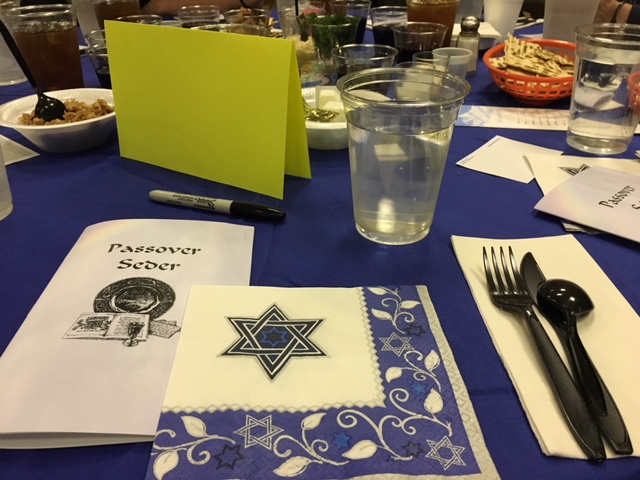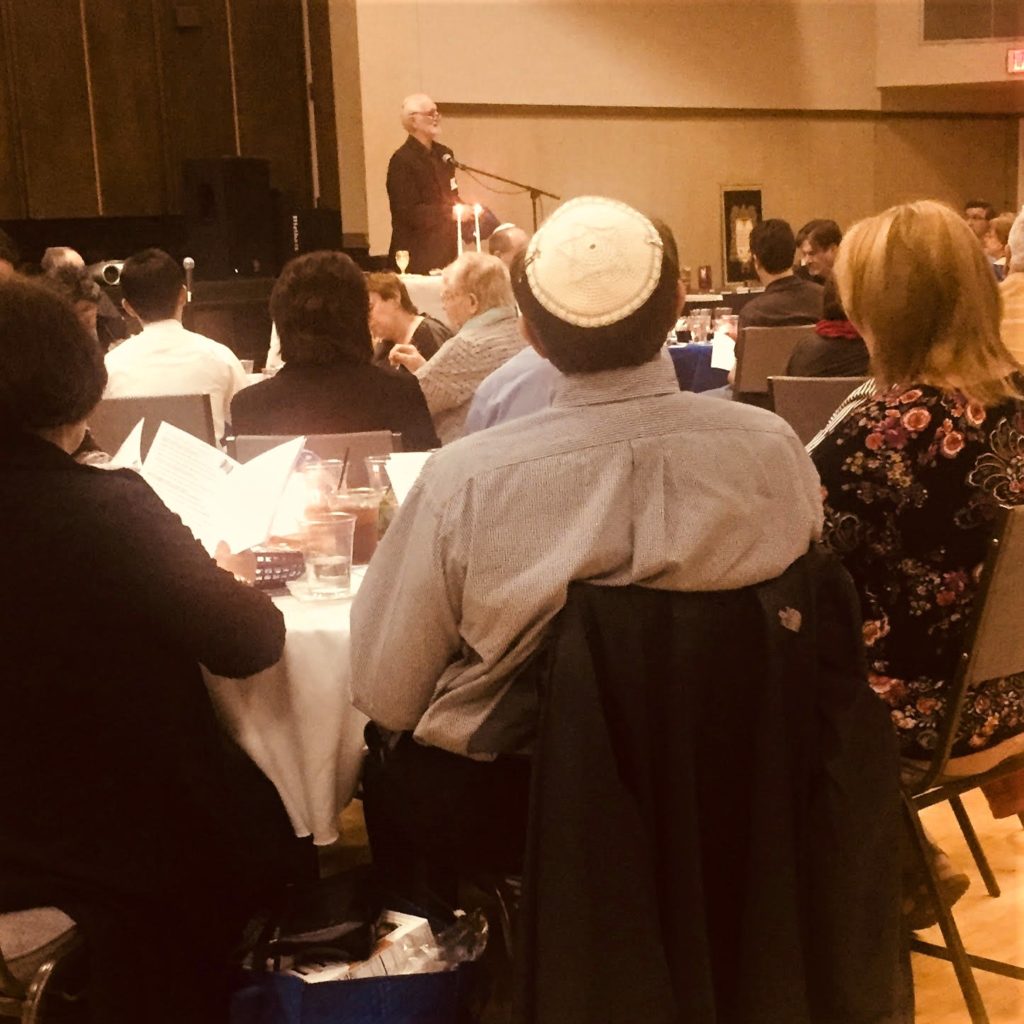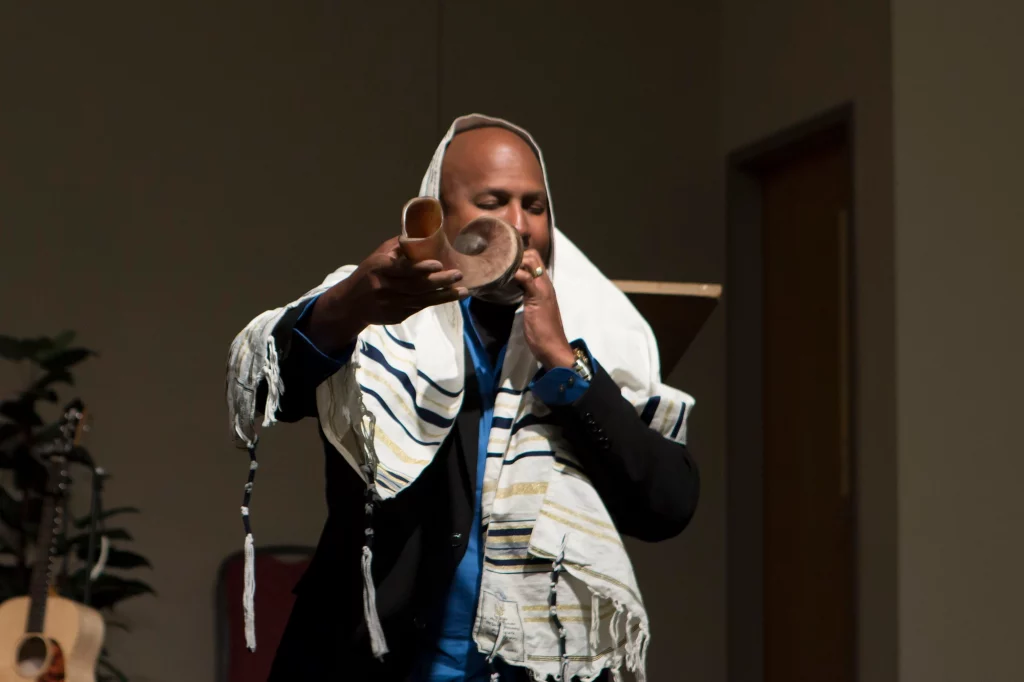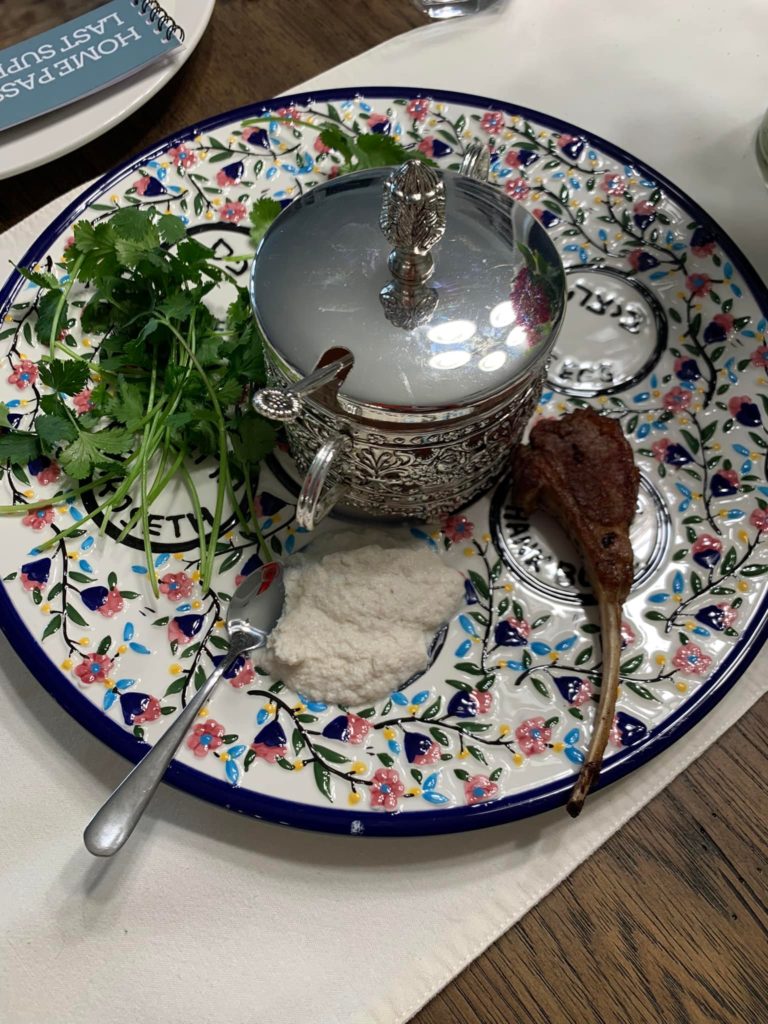
DALLAS (BP) – Everything about the Gospel is Jewish from the perspective of Messianic Southern Baptist pastor Robin David Rose.
“This Gentile thing is a Jewish thing. It’s rooted in Jewish foundations,” Rose, pastor of Adat Shalom in Dallas, told Baptist Press. He points out the Jewish roots of Jesus, the writers of Scripture, the first believers and the first church.

Art Weiner, pastor of Sanctuary Messianic in Lindenhurst, Ill., finds that the deliverance of the Israelites from bondage in Egypt and the Lord’s Last Supper “most dynamically meet” in the Passover Seder.
“The connections between the Passover Lamb and the Israelites putting the blood on the doorposts of their houses during the last plague in Exodus Chapter 12,” Weiner said, “there’s a lot of connection to Jesus taking the cup and saying this is the New Covenant in My blood.”
Rose and Weiner are among Messianic pastors holding Seders this Resurrection season for evangelism, discipleship and worship in their congregations and communities.
At The Disciple Center in Anaheim, Calif., pastor Bruce Stokes encourages members to host Seders in their homes.
“About five years ago we moved them to the home. About six or eight people, families in our congregation, will have a Seder at their home and they will invite people from the congregation, family and neighbors and people from other churches,” Stokes said. “The Disciple Center is based on faith being in the home, with the congregation being supplemental to that, rather than the congregation being primary and the home being supplemental. We think that’s more the biblical model.”

Stokes, president of the Southern Baptist Messianic Fellowship (SBMF), describes his church as Judeo-Christian. About 70 people attended the Seder Stokes participated in at a member’s home April 8, he said, with the head of the household serving as the leader. Attendance at other Seders hosted by members has ranged between 15 and dozens, Stokes said.
The pastors have written their own Haggadahs, or Seder guides, to fit their particular goals.
With a capacity crowd of 140 registrants, Adat Shalom’s Seder April 16 is among the largest of the six Messianic congregations comprising the nearly 300 members of the SBMF. Adat Shalom’s average worship attendance is about 60.
Rose emphasizes the Gospel’s Judaic roots, including the redemption story, in the Seder.
“What gets introduced is the freedom we have in New Covenant beliefs,” Rose said of Adat Shalom’s Seder. “The Passover itself, the Exodus story, is a redemption story. And what we do is we include the redemption story that is ours as well, as believers, receiving the Passover Lamb Who was sacrificed for us and has made us unleavened, as the Scripture in Corinthians says.”
Rose believes both Gentile and Messianic believers can enrich their understanding of Christianity by attending a Seder, and that Jews can discover the Messiah.

“There are so many different connections that relate to us as believers that have their foundations in Passover. Pretty much everything you do in Christianity, as you try and walk as New Testament or New Covenant believers, if you just look deeper, you’re going to find out that everything pretty much has a Jewish foundation to it,” Rose said. “I believe the Old Testament is foundational when it comes to the introduction of the New Testament. Even Paul said that the Old Testament … is our tutor, teaching us, leading us to faith in Messiah.”
Weiner leads a congregation of 30 worshipers, but has received at least 50 registrations for Sanctuary Messianic’s Seder April 14. He will extend an invitation to Christian discipleship when the third cup of wine or grape juice, considered the cup of freedom, is served.
Weiner plans to show a video of the events surrounding the crucifixion, amplified by a musical presentation. The Seder will be livestreamed on Sanctuary Messianic’s YouTube channel.
“Right at this point where we’re talking about Jesus taking the cup, and the bread after the meal,” Weiner said, “that will be the point that we make an invitation to those that don’t know the Messiah.”
Weiner appreciates the opportunity to share the connectedness of the deliverance of the Israelites and the redemption Jesus offers all sinners.
“The Scriptures are a complete book,” Weiner said. “And the connectedness from the Passover, in terms of understanding of even Jesus’ Passion Week are so tied. To me, it’s just a blessing to have an opportunity to share that with others, and see others appreciate that connection as well.”
Stokes modeled his Haggadah to reach children in particular. It is used in all of the home-based Seders in his congregation.
“The Passover Seder that Judaism is required to keep is really so the children will ask (why). It’s really focused on the children being inculcated in the faith,” Stokes said. “So we try to do the same thing, though ours is a little different. Our congregation is not Jewish, so we do what we call a Last Supper Seder. We reenact the Last Supper, which was a Passover Seder, and we use the Seder as a backdrop for reenacting the Last Supper.”
The congregation’s Judeo-Christian distinction is important to Stokes.
“We are Judeo-Christians in that our Christianity is heavily influenced by the Jewish foundations of the faith,” he said. “However, a Messianic Jewish congregation is a congregation that is founded in its Jewish identity that expresses that in their belief of Yeshua as the Messiah. In the Southern Baptist Messianic Fellowship, we have both Messianic Jewish and Judeo-Christian congregations.”
















